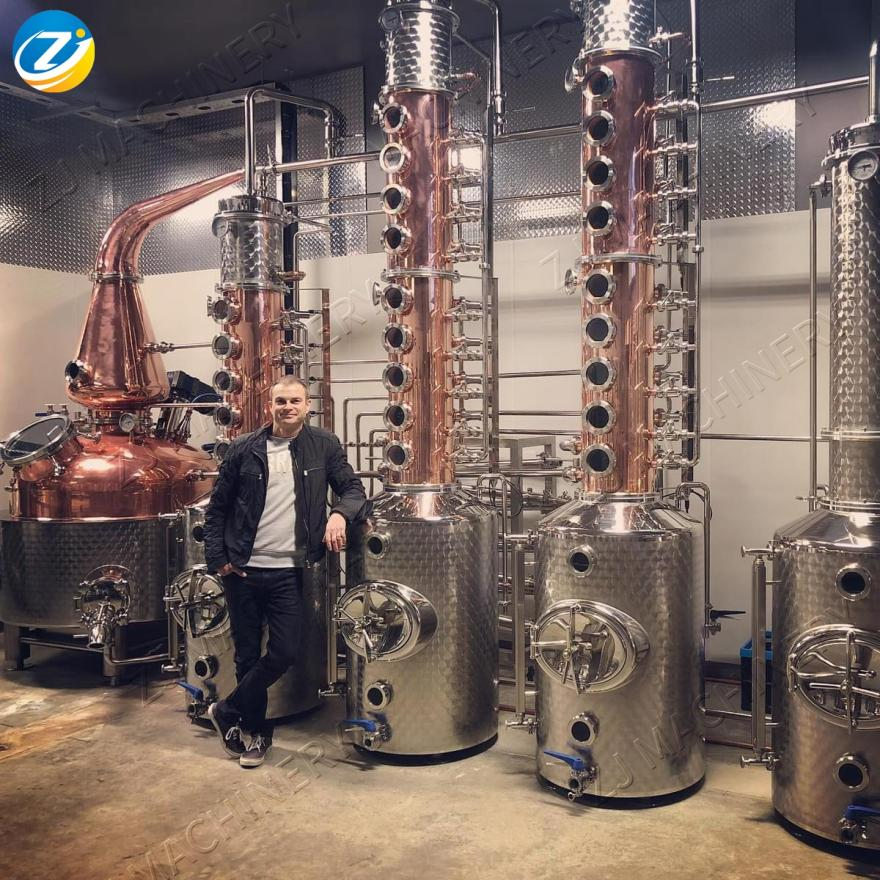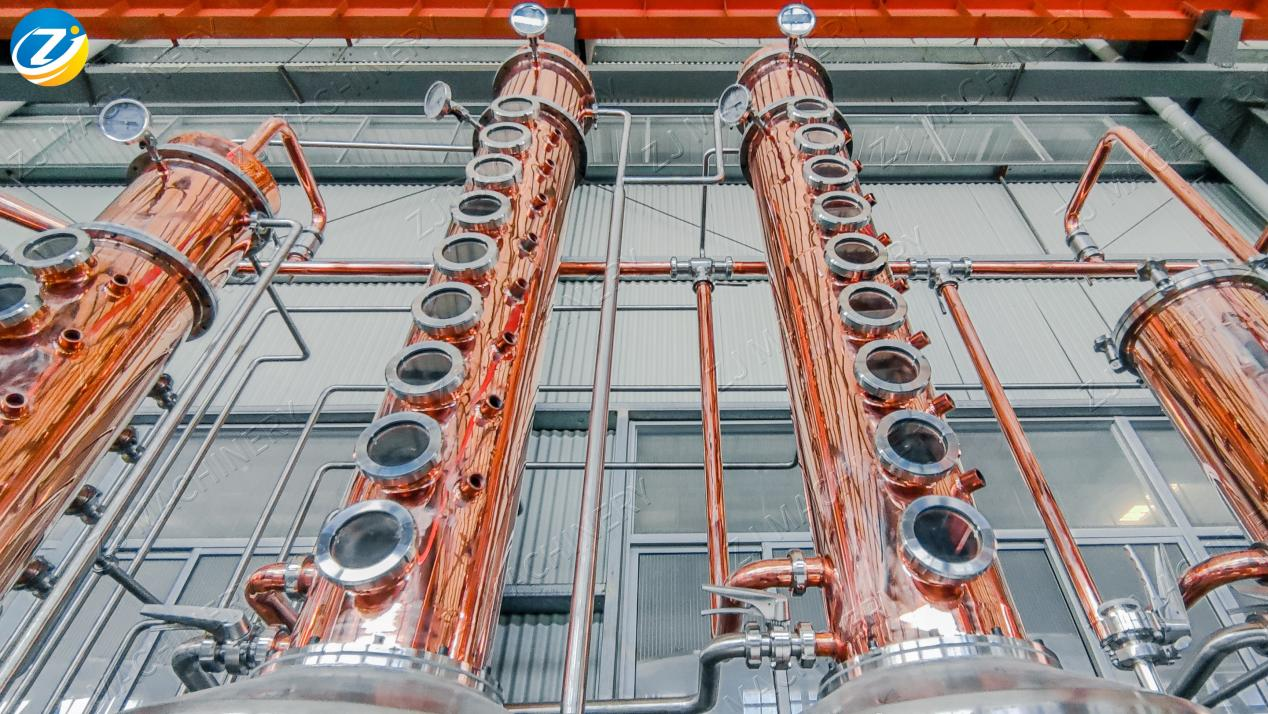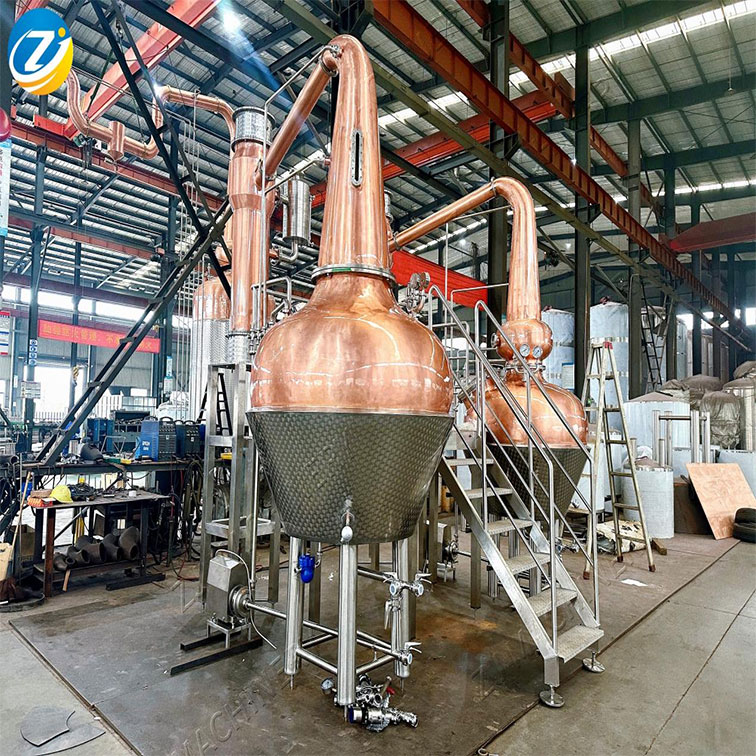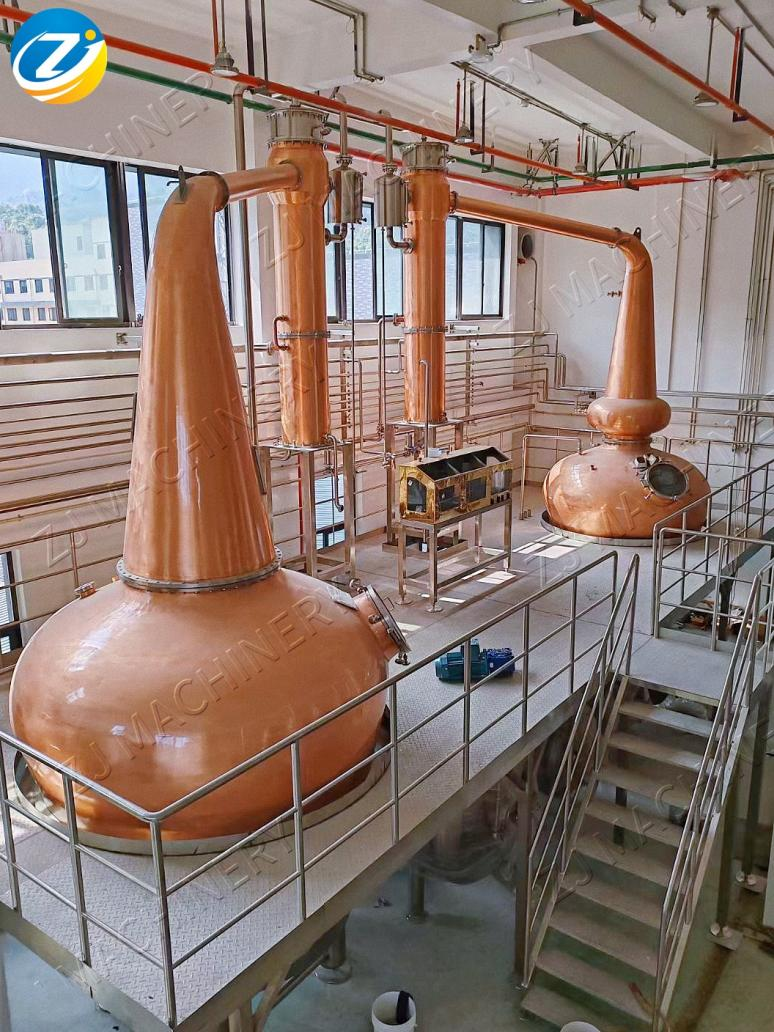In the world of whisky production, the distiller is often referred to as the heart of the distillery. Mastering its operation requires deep technical expertise—sometimes even the guidance of industry professionals or academic institutions. Today, let’s explore the two main types of whisky stills: the column still and the pot still.
A column still (also known as a continuous still) is primarily used in the production of grain whisky, following processes such as corn milling, gelatinization, fermentation, and distillation. The column still is composed of multiple rectification plates, bubble caps, and reflux level control arms.
It is characterized by its consistent output, high purity, and elevated alcohol content. However, the resulting spirit contains fewer esters, giving it a lighter aroma and flavor. The system is also highly efficient, making the distillation column equipment ideal for large-scale operations.

Allows continuous distillation with high efficiency
Produces stable, high-proof, and clean spirits
Results in a light and neutral flavor profile, with fewer congeners
Best suited for those who prefer crisp, clean-tasting whiskies
Column stills are well-suited for batch production in large distilleries, especially those focused on grain whisky manufacturing.

The pot still—often referred to as a single malt still—typically includes two or three individual copper stills. Its iconic shape resembles a swan neck, and while many may appear similar, no two pot stills in the world are exactly alike. The reflux that occurs during distillation has a profound impact on the whisky’s final character, and variations in the neck’s length, curvature, and shape all contribute to distinctive flavors.
Common pot still designs include:
Wide-neck type: Directly connected to a conical neck
Lamp-glass type: Tapers once near the top
Boiling-ball type: Features a round bulge in the neck
The chinese pot still is only capable of batch distillation, meaning they must be emptied, cleaned, and refilled after each run. While less efficient, they retain more of the oils and flavorful compounds created during fermentation, resulting in a richer, more complex whisky.

Enables single distillation batches, ideal for preserving flavor complexity
Produces a full-bodied, character-rich whisky
Lower efficiency and alcohol purity compared to column stills
Requires more time and labor between distillation runs
Pot stills are mainly used in the production of malt whisky, where preserving the distinctive character and depth of flavor is a top priority.

At Zhengjiu Machinery, we carefully assess each client’s production needs and stylistic goals before recommending a whisky still. The choice between a column still and a pot still isn’t just technical—it’s a creative decision that shapes the soul of your whisky.
Whether you're aiming for a clean and light grain whisky or a bold and complex single malt, understanding your distillation equipment is the first step toward crafting a unique and memorable spirit.
Explore our full range of distillation equipment and start building the heart of your distillery today.